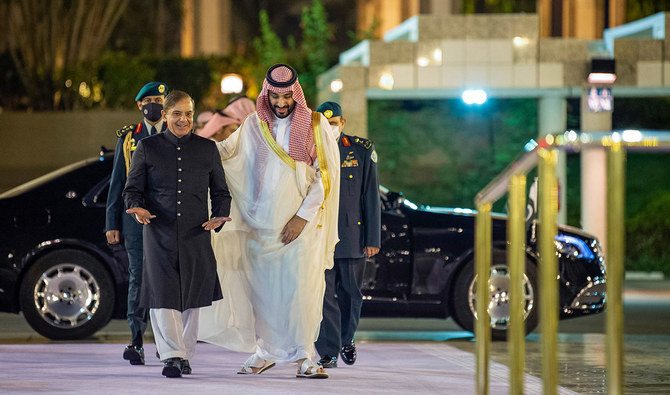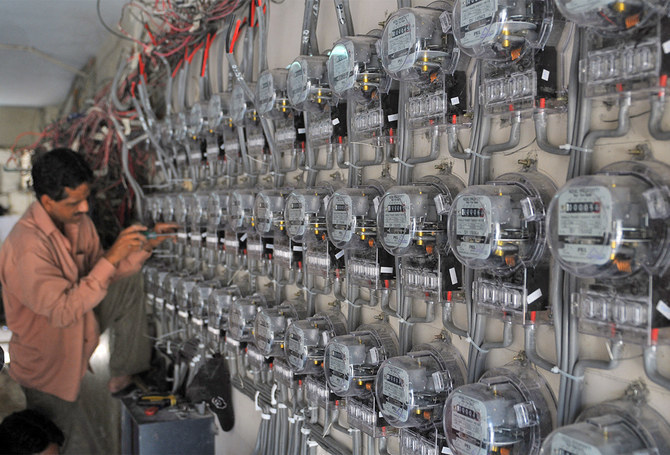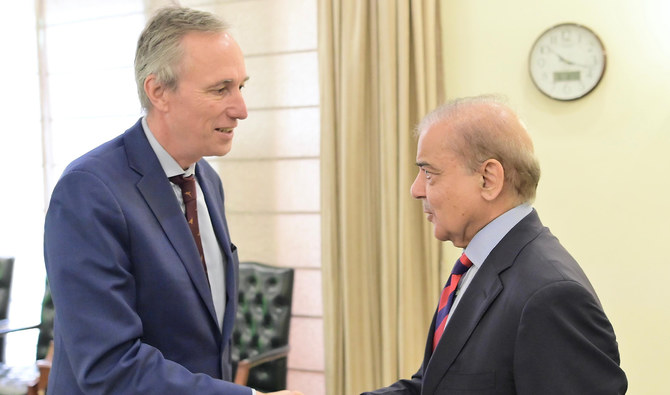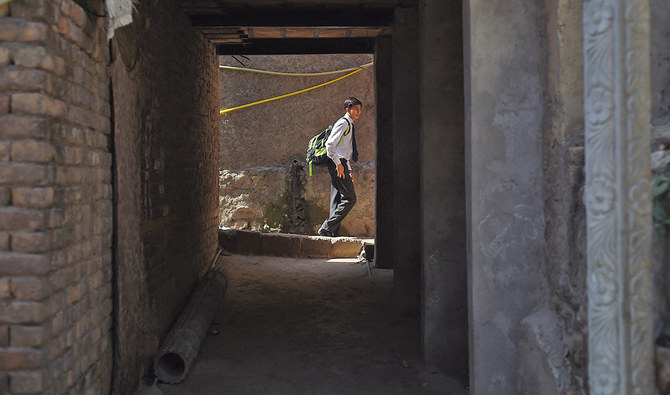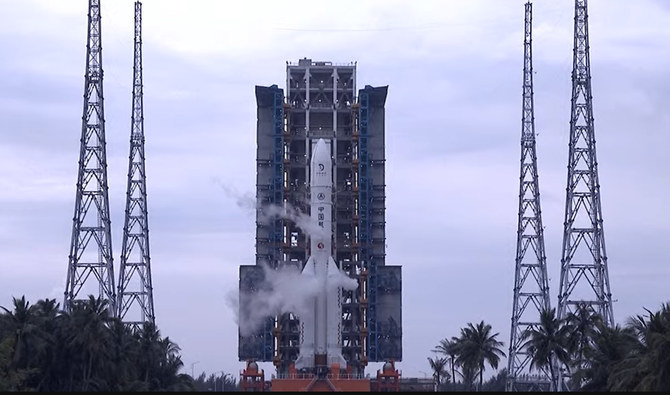ISLAMABAD: Prime Minister Shehbaz Sharif stressed on Monday that his government’s priority would be transforming Pakistan-Saudi Arabia’s time-tested relationship into a “mutually beneficial” economic partnership, a statement from his office said.
Pakistan set up a hybrid government body, the Special Investment Facilitation Council (SIFC) last year to attract foreign investment in the country’s key economic sectors. The SIFC has been seeking investment in sectors like energy, mines and minerals, information technology, agriculture and livestock, and industry and tourism.
The council has specifically paid attention to the Gulf countries where its economic interests remain deeply entrenched.
Saudi Arabia’s Ambassador to Pakistan, Nawaf bin Said Al-Malki, called on PM Sharif on Monday, the Prime Minister’s Office (PMO) said. The Pakistani premier thanked Crown Prince Mohammed bin Salman and King Salman bin Abdul Aziz during his meeting with Malki for felicitating him after he was elected as the country’s chief executive.
“The Prime Minister highlighted that his government’s priority would be to transform the time-tested bilateral relations between Pakistan and Saudi Arabia into a mutually beneficial, strategic and economic partnership,” the PMO said. “With a focus on attracting Saudi investment for bankable projects in Pakistan.”
In his meeting with Malki, Sharif thanked Saudi authorities for expanding the Makkah Route Initiative’s scope to facilitate Pakistani Hajj pilgrims. Launched as part of the Kingdom’s Vision 2030 plan, it allows for the completion of immigration procedures at the pilgrim’s country of departure. This makes it possible to bypass long immigration and customs checks upon reaching Saudi Arabia, which significantly reduces the waiting time and makes the entry process smoother and faster.
A Saudi delegation arrived in Pakistan last week to evaluate Karachi airport to explore the possibility of extending the facility to the city.
Malki invited PM Sharif to visit Saudi Arabia, assuring him of the Saudi leadership’s full support, the PMO said. “He said that Saudi Arabia would always remain a reliable partner for building a stronger and prosperous Pakistan,” it added.
Pakistan and Saudi Arabia enjoy strong trade, defense and brotherly relations. The Kingdom is home to over 2.7 million Pakistani expatriates, serving as the top destination for remittances for the cash-strapped South Asian country.



